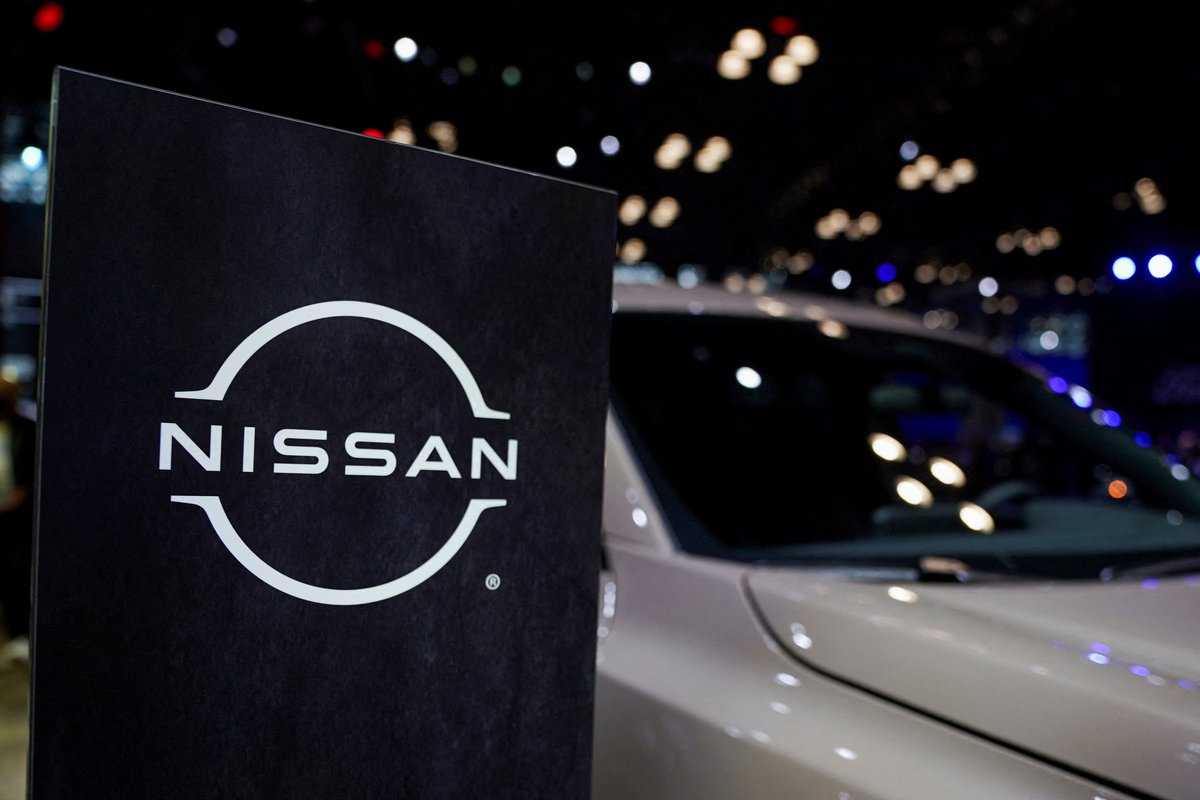
A Nissan logo is seen next to a vehicle during the New York International Auto Show, in Manhattan, New York City, U.S., April 5, 2023.
14:00 JST, November 22, 2024
TOKYO (Reuters) – Nissan Motor 7201.T will cut or transfer about 1,000 jobs in Thailand as it shrinks production in Southeast Asia, part of its recently announced global workforce reduction plan, two sources familiar with the matter told Reuters on Friday.
Nissan plans to partially stop production at its Thailand Plant No.1, one of two car assembly plants in the country, and consolidate the operations into Plant No.2 by September next year, according to the sources, who declined to be identified because they were not authorized to speak on the matter.
A Nissan spokesperson declined to comment on the job cuts but said the partial consolidation of the plants were underway to upgrade equipment and no plant will be closed there.
“The Plant No.1 continues to operate as our major production site in Thailand,” the spokesperson said.
The struggling Japanese carmaker earlier this month announced a plan to cut 9,000 jobs worldwide after posting worse-than-expected half-year earnings. In the United States, about 6% of local staff there are leaving Nissan by the end of this year by accepting early retirement packages.
The two Thailand plants are in Samut Prakan province on the outskirts of Bangkok. At maximum, Plant 1 had production capacity of about 220,000 units, while Plant 2 had capacity of 150,000 units, making Thailand the biggest Southeast Asian production hub for the company.
Nissan’s sales in Thailand dropped 30% to about 14,000 units in the past financial year ended in March. While Japanese automakers, also including Toyota 7203.T and Honda 7267.T, have dominated the Thailand market for years, Chinese makers such as BYD 002594.SZ and SAIC 600104.SS were emerging fast with electric vehicle options.
The two Thailand plants have also produced export-bound SUV models such as Kicks for other Southeast Asian nations, and Terra for the Middle East and African markets.
Top Articles in Business
-

Prudential Life Insurance Plans to Fully Compensate for Damages Caused by Fraudulent Actions Without Waiting for Third-Party Committee Review
-

Narita Airport, Startup in Japan Demonstrate Machine to Compress Clothes for Tourists to Prevent People from Abandoning Suitcases
-

Japan, U.S. Name 3 Inaugural Investment Projects; Reached Agreement After Considerable Difficulty
-

Toyota Motor Group Firm to Sell Clean Energy Greenhouses for Strawberries
-

SoftBank Launches AI Service for Call Centers That Converts Harsh Customer Voices into Softer Voices
JN ACCESS RANKING
-

Japan PM Takaichi’s Cabinet Resigns en Masse
-

Japan Institute to Use Domestic Commercial Optical Lattice Clock to Set Japan Standard Time
-

Israeli Ambassador to Japan Speaks about Japan’s Role in the Reconstruction of Gaza
-

Man Infected with Measles Reportedly Dined at Restaurant in Tokyo Station
-

Videos Plagiarized, Reposted with False Subtitles Claiming ‘Ryukyu Belongs to China’; Anti-China False Information Also Posted in Japan




















